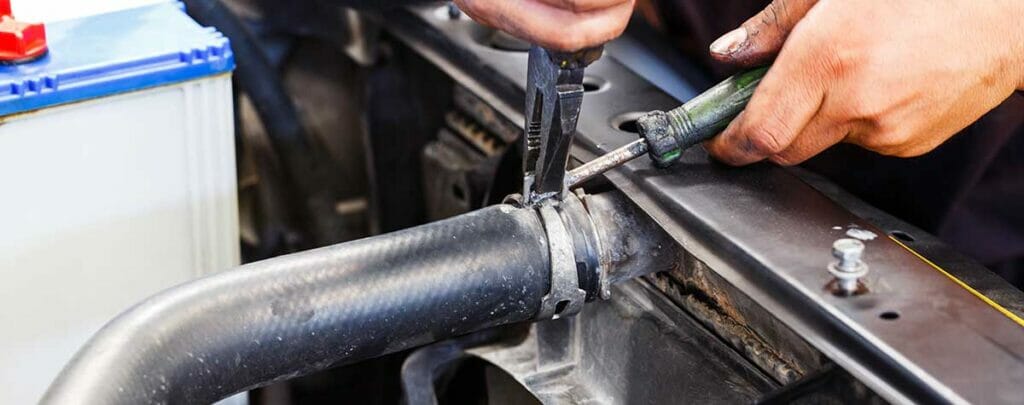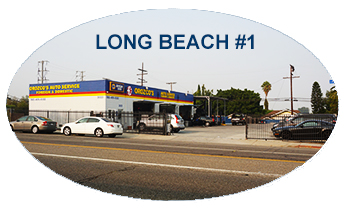
If you have your driver’s license, then, at the very least, you most likely know how to read your vehicle’s speedometer and fuel gauge. But what about all of those other gauges on your dashboard? It is important to know how to read your vehicle’s vital signs, and one especially critical gauge to keep an eye on is the temperature gauge. Your vehicle’s temperature gauge tells you the temperature of your vehicle’s engine, and should always stay somewhere in the middle when your car is warmed up. If you notice steam coming from under your hood, a temperature warning light illuminated on your dashboard, or the temperature gauge is reading abnormally high, then it’s time to pull over and turn your engine off before it suffers serious damage.
Any sign of overheating should be taken seriously, and you should immediately shut off your engine to prevent further damage. Letting an engine continue running while it overheats can cause warped cylinder heads and damage valves, camshafts, and pistons. Even letting the engine cool for an hour and refilling the radiator with coolant may not fix the problem.
Here are some common causes of overheating:
– The coolant level could be extremely low, because of long-term neglect or because a leak has developed in the radiator or radiator hoses. Coolant circulates inside the engine block to cool it, and the leak might be in the block, or from the water pump or heater hoses. Old coolant loses its corrosion-inhibiting properties, allowing rust to form and ultimately causing damage.
– You have a blown head gasket, allowing coolant to leak into the combustion chambers.
– The thermostat that allows coolant to circulate may be stuck in the closed position or a clog may have developed, perhaps from debris in the cooling system.
– The engine cooling fan has stopped working or the radiator’s cooling fins are clogged with debris so that the airflow that reduces the coolant temperature is restricted.
– The radiator cap has gone bad and no longer maintains enough pressure in the cooling system, allowing coolant to boil over (engines normally operate at about 210 to 220 degrees Fahrenheit).
– The water pump has stopped working or the belt that drives it broke or is slipping and not pumping enough coolant.
– You have been towing weight well over the vehicle’s towing rating, exceeding the vehicle’s cooling capacity. (You probably also strained the transmission.)
Checking your engine coolant level in the overflow tank on a regular basis can help avoid disasters. If you have to keep filling up your coolant, that is an indication of a small leak that should be taken care of before it becomes a major one. Having your coolant tested and the entire system inspected by Orozco’s certified mechanics every few years is an even better way to prevent cooling system disasters.
If you are experiencing problems with your vehicle or have questions regarding Radiator/Cooling System Problems visit Orozco’s Auto Service Orozco’s Auto Service at any of our convenient locations in Long Beach, Bellflower, Garden Grove or Fullerton!
 Auto Repairs Near You – Get & Keep Your Car “Road Ready”
Auto Repairs Near You – Get & Keep Your Car “Road Ready” 









